Aberdeen legend Davie Robb – who scored the winning goal against Celtic in the 1976 League Cup final – has died at the age of 74.
Robb is 18th on the Dons’ all-time appearances list, having played for the club 345 times between 1966 and 1977.
As well as scoring the extra-time winner in the 2-1 League Cup triumph over Celtic at Hampden – one of 98 goals for the club – the hardy, industrious forward, who was nicknamed “The Brush”, was also in the side who beat the Hoops 3-1 to secure the Scottish Cup at the same venue six years earlier.
In 1970/71, the year after the earlier Scottish Cup triumph, the team came a very close second to champions Celtic in the old First Division.
During his time at Aberdeen, Robb was a team-mate of the club’s all-time top-scorer Joe Harper.
Harper played with Robb during his first Dons spell (1969-1972) under Scottish Cup-winning boss Eddie Turnbull, as well as Jimmy Bonthrone, and on his return for two-and-a-bit years under Ally MacLeod and then Billy McNeill – before Robb departed for the US.
In an interview with the Scotsman in 2014, Robb acknowledged he’d taken on the role as the “hard man” for Eddie Turnbull after the manager signed him as a teen and made him a mainstay of his Dons side. He was a protector of his team-mates, including fellow striker Harper.
However, although Harper recognises elements of this description of his late team-mate, he also thinks Robb’s abilities as a player were under-appreciated and his personality was perhaps not what people expected from the man they saw on the field.
Harper said: “He was a smashing guy and used to look after me a lot when the big boys were kicking me upside down.
AFC Heritage is devastated to learn that sadly Davie Robb – The Brush – has died. He was a top twenty Don, both in appearances [345] and goals [98] and he was a heroic, rumbustious and loyal icon for the Dons and the Red Army. RIP Davie. pic.twitter.com/Ff9QDGxrv1
— AFC Heritage Trust (@AFCHeritage) July 9, 2022
“A very quiet guy – I think private is the best word. Him and Martin Buchan got on very well, because they were both sort of the same type of characters.
“He was a lovely guy.
“He was a good player as well. A lot of people thought he was just a big, hard guy and that was it, but he was a really good footballer.
“Davie had some engine on him and scored some great goals – and some unbelievable goals. There was the one from six inches to beat Celtic to win the League Cup after extra time.”
Robb made the all-important contribution in that final off the bench, having not expected to feature in MacLeod’s team at all due to a troublesome right knee which required multiple operations, as well as a less paternal relationship with the then-Dons manager than he’d had with Turnbull.
⏪ Back to 1976…
🏆 Davie Robb scores the winner, in extra time, in the League Cup final. #StandFree
— Aberdeen FC (@AberdeenFC) April 30, 2020
‘All the football players I knew admired Davie so much’
Harper paid tribute to five-cap Scotland international Robb as a player who was also selfless on the football pitch, adding: “He was all for his team. He would give his heart and his soul for his team.
“Some of the fans used to laugh about him, and think he was a bit of a figure of fun at times, but we all appreciated that, as football players, what you needed was a Davie Robb in your team.
“All the football players I knew admired Davie so much.”
Pele and Olivia Newton-John
Instantly recognisable due to his trademark long red hair and moustache, which earned him the “Brush” moniker (his Pittodrie team-mates affectionately called him “Basil Brush”), Robb also went on to have a remarkable career post-Aberdeen in the United States. This only served to increase his cult hero status among the Red Army.
Although he returned to British football briefly to play for Norwich City in 1978/79, between his Dons departure and 1980, Robb turned out for North American Soccer League (NASL) sides the Tampa Bay Rowdies, Philadelphia Fury, Vancouver Whitecaps and Tulsa Roughnecks.
However, his time across the Atlantic is best remembered as a period in which he became friendly with global football superstars Pele, George Best, Johan Cruyff and Franz Beckenbauer, as well as also becoming romantically involved with Grease star Olivia Newton-John.
It is with immense sadness we have learned of the passing of Davie Robb.
The thoughts of everyone at Pittodrie are with the AFC legends family, friends & former teammates at this sad time. pic.twitter.com/EsN03EQJnG
— Aberdeen FC (@AberdeenFC) July 9, 2022
Robb’s tales from his time in the States included other names like Rat Pack stars Frank Sinatra and Sammy Davis Jr, and Fleetwood Mac’s Stevie Nicks.
Harper said: “I spoke to him during the time when he was in America two or three times, and kept in contact in the same way I did with Jim Hermiston in Australia.
“Once people are away doing their own thing in other places, you can only say in a phone call: ‘How you doing? How you getting on? Are you ok?’
“But he was a character. He went and played with Pele, then there was the famous story where Olivia Newton-John sent her entourage over to Davie’s table and asked him to go over and join them, and then they dated for a while.”
‘He wanted to do his own thing’
In his later years, Dundee-raised Robb, a father of three, returned to the north-east, living in Banchory, where he spent time as a volunteer counsellor for people with addictions.
Really sad news about Davie Robb. As a young player he was really good with me. Encouraging and always giving me confidence to complete against my hero’s in training. You never forget that. Loved his all action playing style and his dressing room banter RIP Davie pic.twitter.com/KxUIZ0MXyR
— Neil Simpson (@NeilSimmy8) July 9, 2022
Harper says in-person meetings with his private former team-mate were rare, special occasions, explaining: “I think I’ve only been out with him twice or three times in the years since.
“To celebrate the new year, along with the rest of the players.
“We used to find a pub where it was quiet and we could enjoy a Christmas drink or a new year drink and something to eat. We’d get about 14 of us at that.
“You all leave football and go your own ways, and Davie wasn’t much one for socialising with all the rest of the team.
“As I say, in the dressing room he was a different person (from what the public might have thought). He just wanted to do his own thing, and that’s why he moved out to Banchory.”
Summing up his thoughts on Robb, Harper said: “He was a bit of an eccentric as well, and he used to wear some really bright clothes to go with the hair.
“He was an absolute character, and he had his own idea about things, but he was good hearted.
“At Christmas time, the players would get Christmas baskets off (chairman) Dick Donald) and it was Davie who started us all giving them to the young players who washed our gear and hung it up.
“We also did a lot of meet and greets with schoolchildren in those day – myself, Bobby Clark, Davie and the other boys, like Arthur Graham. We’d go to the sick kids hospital and at Christmas time we’d go to get toys for them and take them up. It was Davie who had a lot to do with that as well.
“He had a right heart, he was a nice guy, he was a man’s man and a strong boy.
“I haven’t thought about Davie in maybe four or five months – but when something like happens it all comes flooding back to you how good a boy he was and how nice a guy he was.”
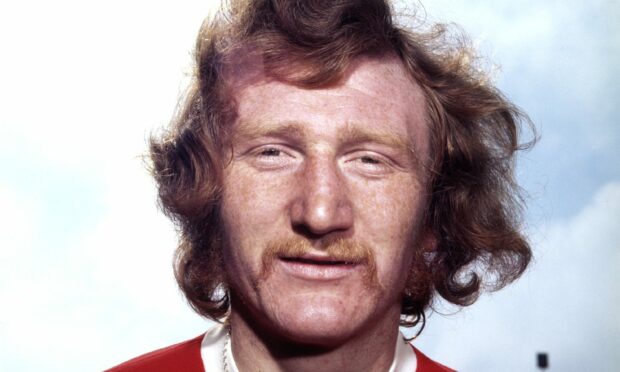
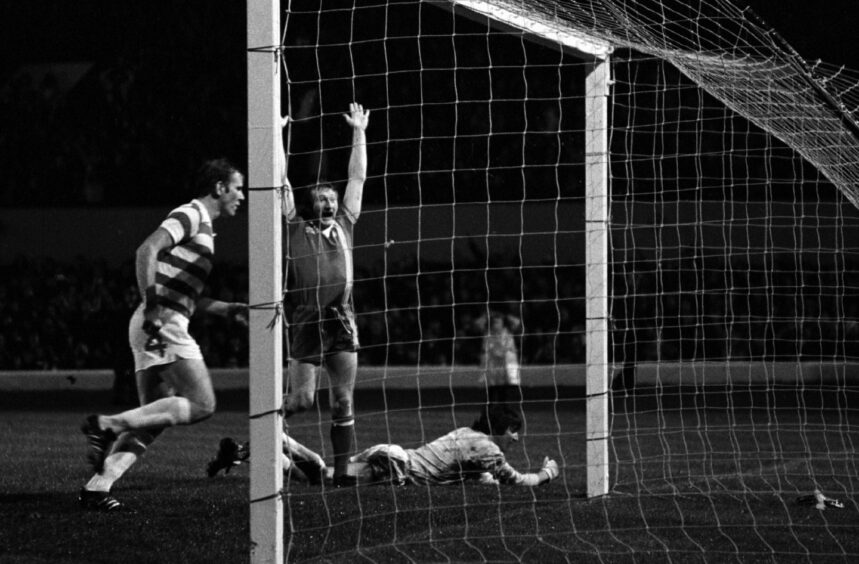
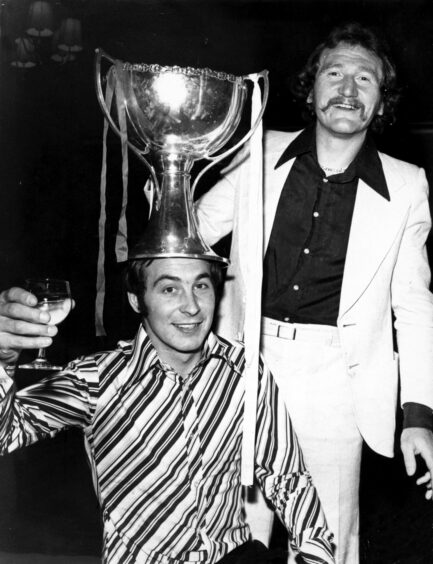
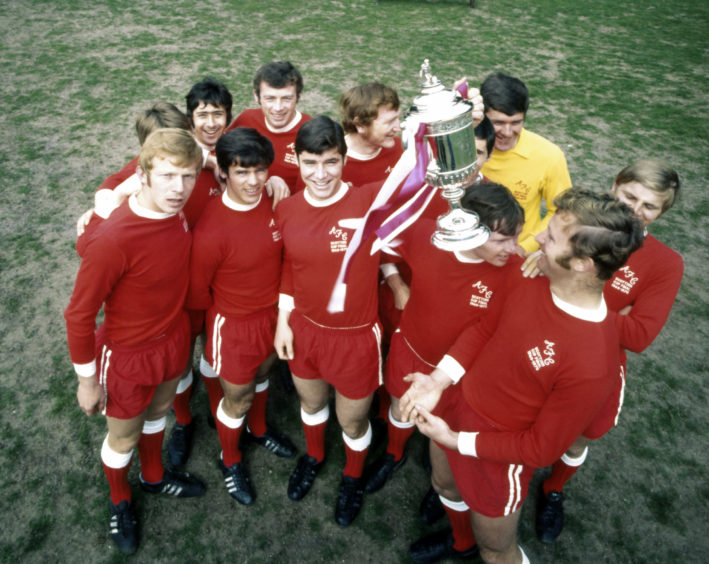
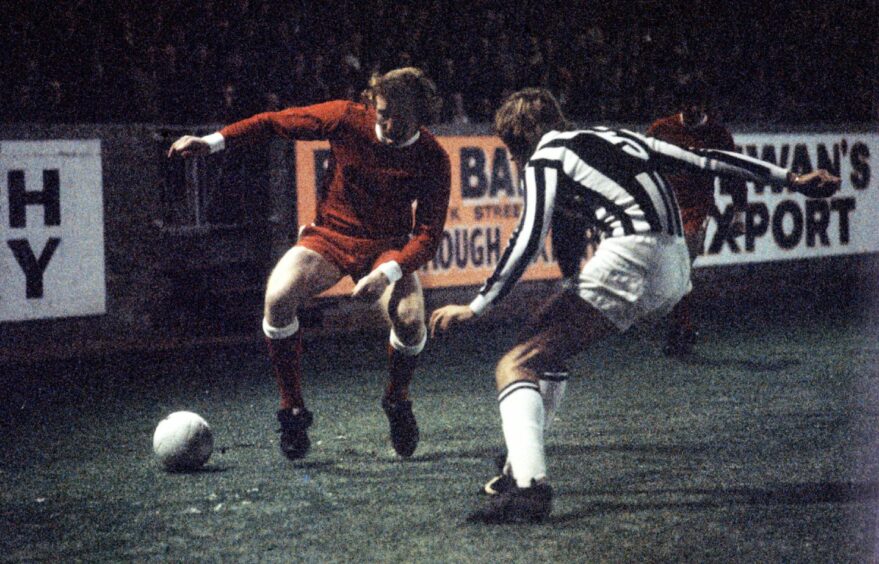
Conversation